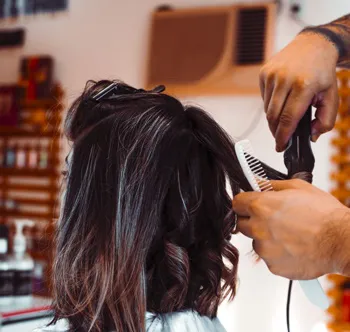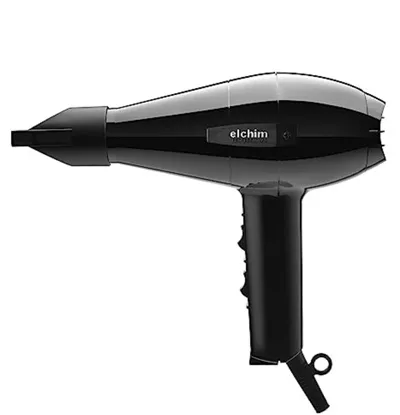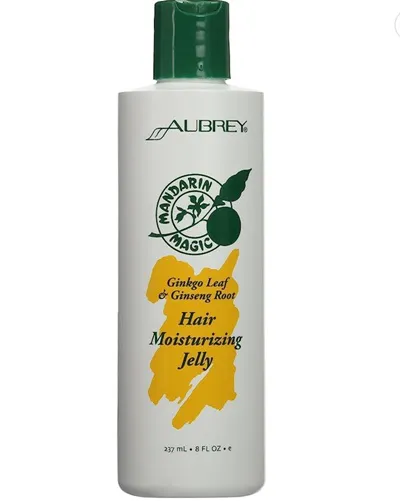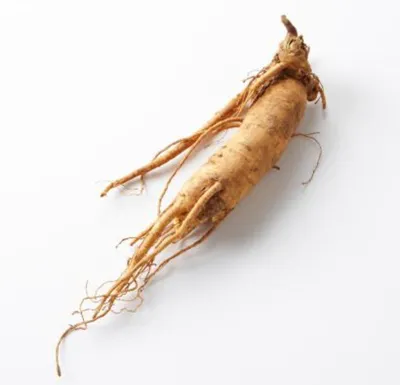 Forum Home
Forum Home
Updated Overview Thread - May 2005
Author
Topic Search
Print
Translate

Jenny_RR 

Super Elite Member
Joined: Dec 26, 2004
Location:
Posted: May 01, 2005 at 11:47pm
Let's start at the
very beginning. Extensions are very confusing. There are many of us
here who have been doing this for awhile, and we still don't know what
certain methods and techniques are called, but hopefully this will
serve as a good overview. (I'm leaving out many details here for the
sake of space, so ask as many follow-up questions on the boards as necessary.)
Extensions can be defined as the process of adding hair to your existing hair to create length and/or volume. They can be either synthetic (manmade) or human hair (hair that is imported, primarily from Asia, and usually chemically treated to match different hair types). Synthetic hair is generally categorized by its quality, the highest quality being monofibre or thermofiber (monofilment, such as Dome, Prostyles, PlastikHaar, Trimco, etc.; or thermofiber such as WaWa, Hot Stuff Fusion, Freetress Futura, Ebonyline Adore, etc.). Human hair categorization is more complex, so I wont delve into it here, except to say that some of the terms used to describe the different grades are Remy, Remi, virgin, single-drawn, double-drawn, "European," Indian, temple, Asian, cuticle, non-cuticle, and so forth. There's a lot of debate on what the best human hair is, and while there's no clear consensus, the brands/websites that have gotten the best, most consistent reviews are Bohyme, His and Her Cuticle, Extensions-Plus, and Glamourhair Remi. For untreated Indian hair, Nature Girl and Bliss are also popular vendors (there's tons of info. in the FAQs thread about all of these brands).
Extensions can also be divided into categories pertaining to their method of attachment, the main divisions being: clip-ins (hair that comes on toupee clips or similar attachments that are clipped into the roots of your own hair and taken out at night) or permanent (not, in fact, permanent at all, but will last in your hair for a few weeks up to three or four months and cannot be removed at night). No extensions will last longer than three or four months, because (if for no other reason), when your hair grows, the extensions will be farther away from the scalp/roots, and will need to be moved back up.
Beyond that, when it comes to "permanent" extensions, there is a distinction between: strand-by-stand (also known as individuals or interlocking), which means that a "strand" (actually a few hundred strands) of extensions hair is adjoined to small (usually 1/4 inch) sections of your own hair; and wefts (in which hair is sewn on to a long strip of material resembling a grass skirt or curtain and then attached either by sewing onto cornrowed tracks, microlinking onto tracks, or bonding). There are other basic distinctions, such as braids, dreads, and loose extensions. These boards deal primarily in loose (free-flowing) extensions, so the following will apply to that type only. (If you're interested in dreads, braids, wool, or other alternative styles, Quinnster's is the best online source of information; you'll find the link below.)
Again, wefts can basically be attached to the hair via weaving, bonding, or microlinks. Strand-by-strand extensions can be attached in myriad ways, including various forms of weaving; pinchbraiding (also known as HairPolice, or string, method); Micro-Illusions, or Micro-Point Illusions; fusion (with glue, glue sticks, and glue guns, or prebonded hair--some fusion brand names include Great Lengths, Monkey Barz, Balmain, Cinderella, and so forth). There is also the dome heat-sealing method, which can only be used with synthetic hair; it uses boxbraiding and a heat clamp to seal synthetic hair in on itself (this is quite complex to do, and usually requires two people to install). The Prostyles method is a slightly modified version of the Dome method, which uses a three-way braid and therefore doesn't require an extra set of hands. Heat-seals can be used with human hair extensions, although this is unusual.
Beyond that, there are loc-ing/linking methods (including microrings, extendtubes, and microlinks, which are available for home use, as well as Eurolocs and Hairlocs, which are done by those companies' "certified" extensionists); these are metal tubes (usually aluminum, nickel, or copper) that are clamped down on pretipped strands with your own hair to keep them in place. And finally, there are shrinkies (also known as Shrink Links, which is the branded Mark Barrington salon version, and some people also use dual-wall shrink tubing for this); they are clear tubes that, when heated with a clamp/wand, "shrink" around pretipped extensions strands with your own hair to keep them in place.
As I mentioned before, there are products that fall into all of these categories that are available for DIY, or at-home, use, and others that are only available to licensed stylists. Professionals, of course, can also use the DIY methods, but not the other way around. The branded methods are generally much more expensive. All of the salon versions are capitalized above; the DIY versions are lowercased.
Some other sites that may be useful are Quinnster's Loose overview: http://www.quinnster.pwp.blueyonder.co.uk/
And the Hair Extensions Forum: http://p080.ezboard.com/bhair18356
Just read through the information, and take your time. Different people have different results with various methods, but doing a lot of research will help you find the best method for you.
Keep in mind that there is detailed infomation available on every method and virtually every kind of hair in the FAQs thread: http://talk.hairboutique.com/forum/forum_posts.asp?TID=30344 &PN=1
For vendor links, visit the 101 Links Thread: http://talk.hairboutique.com/forum/forum_posts.asp?TID=30346 &PN=1
And for detailed demos and tutorials from Hair Talk members, visit the Demos thread: http://talk.hairboutique.com/forum/forum_posts.asp?TID=30346 &PN=1
Good luck!
Extensions can be defined as the process of adding hair to your existing hair to create length and/or volume. They can be either synthetic (manmade) or human hair (hair that is imported, primarily from Asia, and usually chemically treated to match different hair types). Synthetic hair is generally categorized by its quality, the highest quality being monofibre or thermofiber (monofilment, such as Dome, Prostyles, PlastikHaar, Trimco, etc.; or thermofiber such as WaWa, Hot Stuff Fusion, Freetress Futura, Ebonyline Adore, etc.). Human hair categorization is more complex, so I wont delve into it here, except to say that some of the terms used to describe the different grades are Remy, Remi, virgin, single-drawn, double-drawn, "European," Indian, temple, Asian, cuticle, non-cuticle, and so forth. There's a lot of debate on what the best human hair is, and while there's no clear consensus, the brands/websites that have gotten the best, most consistent reviews are Bohyme, His and Her Cuticle, Extensions-Plus, and Glamourhair Remi. For untreated Indian hair, Nature Girl and Bliss are also popular vendors (there's tons of info. in the FAQs thread about all of these brands).
Extensions can also be divided into categories pertaining to their method of attachment, the main divisions being: clip-ins (hair that comes on toupee clips or similar attachments that are clipped into the roots of your own hair and taken out at night) or permanent (not, in fact, permanent at all, but will last in your hair for a few weeks up to three or four months and cannot be removed at night). No extensions will last longer than three or four months, because (if for no other reason), when your hair grows, the extensions will be farther away from the scalp/roots, and will need to be moved back up.
Beyond that, when it comes to "permanent" extensions, there is a distinction between: strand-by-stand (also known as individuals or interlocking), which means that a "strand" (actually a few hundred strands) of extensions hair is adjoined to small (usually 1/4 inch) sections of your own hair; and wefts (in which hair is sewn on to a long strip of material resembling a grass skirt or curtain and then attached either by sewing onto cornrowed tracks, microlinking onto tracks, or bonding). There are other basic distinctions, such as braids, dreads, and loose extensions. These boards deal primarily in loose (free-flowing) extensions, so the following will apply to that type only. (If you're interested in dreads, braids, wool, or other alternative styles, Quinnster's is the best online source of information; you'll find the link below.)
Again, wefts can basically be attached to the hair via weaving, bonding, or microlinks. Strand-by-strand extensions can be attached in myriad ways, including various forms of weaving; pinchbraiding (also known as HairPolice, or string, method); Micro-Illusions, or Micro-Point Illusions; fusion (with glue, glue sticks, and glue guns, or prebonded hair--some fusion brand names include Great Lengths, Monkey Barz, Balmain, Cinderella, and so forth). There is also the dome heat-sealing method, which can only be used with synthetic hair; it uses boxbraiding and a heat clamp to seal synthetic hair in on itself (this is quite complex to do, and usually requires two people to install). The Prostyles method is a slightly modified version of the Dome method, which uses a three-way braid and therefore doesn't require an extra set of hands. Heat-seals can be used with human hair extensions, although this is unusual.
Beyond that, there are loc-ing/linking methods (including microrings, extendtubes, and microlinks, which are available for home use, as well as Eurolocs and Hairlocs, which are done by those companies' "certified" extensionists); these are metal tubes (usually aluminum, nickel, or copper) that are clamped down on pretipped strands with your own hair to keep them in place. And finally, there are shrinkies (also known as Shrink Links, which is the branded Mark Barrington salon version, and some people also use dual-wall shrink tubing for this); they are clear tubes that, when heated with a clamp/wand, "shrink" around pretipped extensions strands with your own hair to keep them in place.
As I mentioned before, there are products that fall into all of these categories that are available for DIY, or at-home, use, and others that are only available to licensed stylists. Professionals, of course, can also use the DIY methods, but not the other way around. The branded methods are generally much more expensive. All of the salon versions are capitalized above; the DIY versions are lowercased.
Some other sites that may be useful are Quinnster's Loose overview: http://www.quinnster.pwp.blueyonder.co.uk/
And the Hair Extensions Forum: http://p080.ezboard.com/bhair18356
Just read through the information, and take your time. Different people have different results with various methods, but doing a lot of research will help you find the best method for you.
Keep in mind that there is detailed infomation available on every method and virtually every kind of hair in the FAQs thread: http://talk.hairboutique.com/forum/forum_posts.asp?TID=30344 &PN=1
For vendor links, visit the 101 Links Thread: http://talk.hairboutique.com/forum/forum_posts.asp?TID=30346 &PN=1
And for detailed demos and tutorials from Hair Talk members, visit the Demos thread: http://talk.hairboutique.com/forum/forum_posts.asp?TID=30346 &PN=1
Good luck!
New On HairBoutique.com









